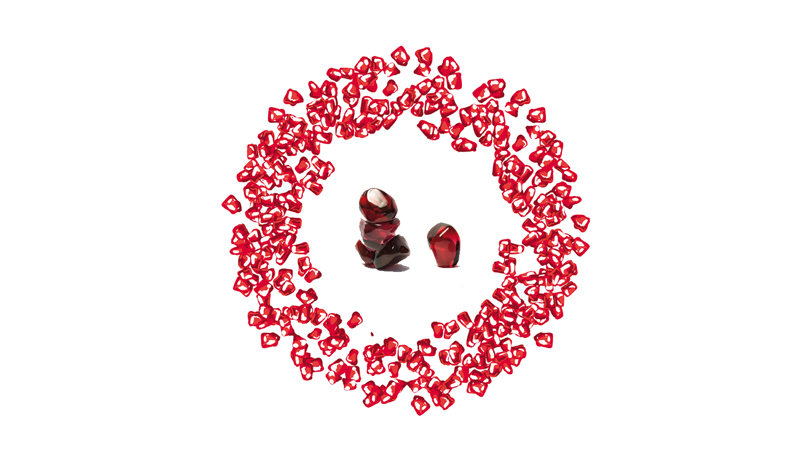

Pomegranate, the sweet and juicy fruit whose medicinal properties are too well known, ought to be on your plate this season. October is the last month for the pomegranate season. And the Sultanate is known for its high quality pomegranates, which are grown in several parts of the country. However, the ones grown in Jabal al Akhdar are much sought-after for their exceptional quality.
Experts have been studying the fruit for its bioactive ingredients and applications in the nutraceutical and food industries.
According to Sumaira Fatma, a nutritionist, pomegranates are packed with vitamins, minerals, antioxidants and fibre.
“It is a fruit mentioned in the Holy Quran for its benefits.” “The polyphenols-rich pomegranates serve as potential antioxidants. The Punicic acid in pomegranates reduces cholesterol levels,” she says. “The fruit also has anti-cancer benefits.” It also has other health benefits. “Fibre and water content in pomegranates provides relief from constipation and serves as a cure for colon-related disorders,” she said.
Al Nabhani said that traditionally the people of Jabal Akhdar use pomegranate peel as remedy for stomach ache. “They grind the dried peel and have it with honey.” Alzheimer’s is a health issue that still does not have prescribed medication. But pomegranates can help. “Its health benefits are significant in Alzheimer’s patients,” noted Sumaira.
“It is a perfect energy and refreshing drink for pre- or post-heavy work out. The red vibrant-coloured drink, packed with nutrients, is liked by children. It takes care of their nutritional needs,” she explained.
Studies have found the pomegranate seed residues are composed of sterols, polyphenols, tocopherols and octadecatrienoic acid (Punicic acid).
Sterols, found in vegetable oils, nuts and seeds, help lower cholesterol levels and prevent heart disease/ attacks. Polyphenols, compounds found in plants, greatly benefit the human body and help fight diseases.
The health benefits of Vitamin E (tocopherol) include stronger immune system and reduced risk of cataracts and cancer.
Pomegranate seed oil contains Punicic acid, which is anti-inflammatory and anti-cancer. It prevents cardiovascular diseases, controls high blood pressure and ensures flawless skin.
Pomegranate seed oil has gained popularity in aromatherapy as it is said to have healing qualities.
The Department of Food, Science and Nutrition of Sultan Qaboos University and the Daris Research Centre had conducted a study on the antioxidant capacity of pomegranate peel extract and identify major functional components in the extract.
A variety of phytochemicals present in pomegranate peel extract were identified. According to researchers, these functional compounds in the pomegranate peels could be utilised by the food as well as pharma/nutraceutical industry.
They, however, concluded that further work is needed to isolate and quantify major functional compounds of pomegranate peels, for example, Ellagic acid.
Ellagic acid is a natural phenol antioxidant found in many fruits and vegetables.
Researchers are also looking into pomegranate’s properties that could fight diabetes and obesity.
In Oman, pomegranate has been traditionally cultivated in Oman in the villages of Jabal al Akhdar. Nizwa is the main market for pomegranates, from where fruits go to other areas. Bulk buyers sell Jabal al Akhdar pomegranates in the regional markets as well.
“There are more than 80,000 pomegranate trees in the Sultanate, with a majority of them in Al Dakhiliyah (26,390), Dhofar (9007), Al Batinah South (9,083) and Muscat (3,113),” said Musallam al Alawi from Ministry of Agriculture and Fisheries Wealth.
According to him, there are many places that grow pomegranates in Oman, but Jabal al Akhdar yields the best fruits, thanks to its weather. There are 10,516 pomegranate farms in the country.
Today visitors from the neighbouring countries visit Jabal al Akhdar, or the Green Mountain, and buy pomegranates directly from the farmers, says Mohammed al Nabhani, a resident of Jabal al Akhdar.
“Jabal al Akhdar’s pomegranates are popular in the Middle East because of their size; they are also known to be soft inside and juicy,” he said.
Al Nabhani said the pomegranate trees suffered this year because of the impact the summer heat on availability of water. “That is why the pomegranate cost about two and a half rials each this year.” The last batch of fruits this season will go on sale soon, according to Al Nabhani.
“The colour of the leaves has begun to change. Children in Jabal al Akhdar learn about the four seasons by watching the pomegranate tree.”
Oman Observer is now on the WhatsApp channel. Click here



